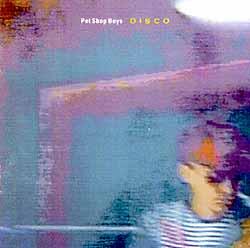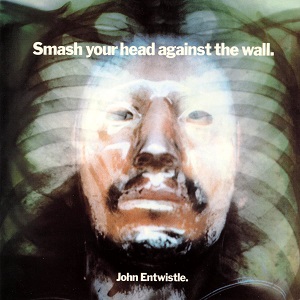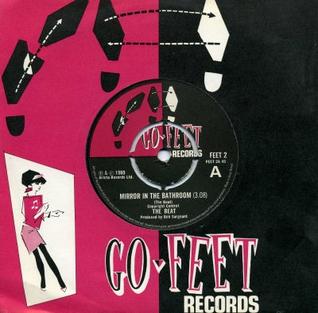Related Research Articles

Orbital are an English electronic music duo from Otford, Kent, England, consisting of brothers Phil and Paul Hartnoll. The band's name is taken from Greater London's orbital motorway, the M25, which was central to the early rave scene during the early days of acid house. Additionally, the cover art on three of their albums showcase stylised atomic orbitals. Orbital have been critically and commercially successful, known particularly for their live improvisation during shows. They were initially influenced by early electro and punk rock.
Stars on 45 was a Dutch novelty pop act that was successful in Europe, the United States, and Australia in the early 1980s. The group later shortened its name to Stars On in the U.S., while in the United Kingdom and Ireland it was known as Starsound. The band, which consisted solely of studio session musicians under the direction of Jaap Eggermont, formerly of Golden Earring, recorded medley recordings made by recreating hit songs as faithfully as possible and joining them together with a common tempo and underlying drum track.

Bis are a Scottish indie pop band composed of Steven Clark, John Clark, and Amanda MacKinnon, formed in 1994. The band's name, rhyming with 'this', derives from "black iron skyline", a lyric from the song "Twilight of a Champion" by The The.

Disco is the first remix album by English synth-pop duo Pet Shop Boys, released on 17 November 1986 by Parlophone in the United Kingdom and by EMI America Records in the United States. Disco consists of remixes of tracks from the band's debut album Please and its respective B-sides. The album includes remixes by Arthur Baker, Shep Pettibone and the Pet Shop Boys themselves.
Who Are You is the eighth studio album by the English rock band the Who, released on 21 August 1978 by Polydor Records in the United Kingdom and MCA Records in the United States. Although the album received mixed reviews from critics, it was a commercial success, peaking at number 2 on the US charts and number 6 on the UK charts.

Marc Cerrone is a French disco drummer, composer, record producer and creator of concert shows. Cerrone is a producer of 1970s and 1980s disco songs. He has sold over 30 million albums worldwide, including over four million copies in France, and eight million copies of Supernature. The single "Love in C Minor" (1976) reached No. 3 and was in the charts for two months, selling three million copies. With "Supernature" (1977), Cerrone merged symphonic orchestration with synthesizers. At the 1978 Billboard Disco Forum, Cerrone received six awards including Disco Artist of the Year.
Ian Geoffrey Levine is a British songwriter, producer, and DJ. A moderniser of Northern soul music in the UK, and a developer of the style of hi-NRG, he has written and produced records with sales totalling over 40 million. Levine is known as a fan of the long-running television show Doctor Who.
The Doctor Who theme music is a piece of music written by Australian composer Ron Grainer and realised by Delia Derbyshire at the BBC Radiophonic Workshop. Created in 1963, it was one of the first electronic music signature tunes for television. It is used as the theme for the science fiction programme Doctor Who, and has been adapted and covered many times.

"Girls & Boys" is a song by the English rock band Blur, released in March 1994 by Food Records as the lead single from the group's third studio album, Parklife (1994). Charting at number five on the UK Singles Chart, "Girls & Boys" was Blur's first top-five hit and their most successful single until "Country House" reached number one the following year. The single surpassed their previous commercial peak "There's No Other Way" by three spots on the UK Singles Chart and saw the group achieve greater worldwide success. In the US, the track reached number 59 on the US Billboard Hot 100 chart, becoming the band's second single to enter the chart after "There's No Other Way". It also reached number four on the Billboard Modern Rock songs chart. Frontman of Blur, Damon Albarn wrote the song's lyrics with bandmembers Graham Coxon, Alex James and Dave Rowntree, while Stephen Street produced it.

Smash Your Head Against the Wall is the debut solo studio album by English rock musician John Entwistle, released in May 1971 by Track Records in the UK and Decca Records in the US. Smash Your Head Against the Wall was the first solo album by any member of rock band the Who, born out of Entwistle's frustrations within the band, namely not having as many of his songs featured on their albums as he would've liked, and it features a guest appearance by the Who's drummer Keith Moon on one track, as well as strong musical influences from the band's work.
"Hallo Spaceboy" is a song by the English musician David Bowie from his 1995 album Outside. It originated as an instrumental by Reeves Gabrels called "Moondust", which Bowie and Brian Eno stripped down and used to form the final track. An industrial rock and electronica number influenced by the Pixies and Nine Inch Nails, the song contains a hypnotic sound, with synthesisers, loops and distorted guitar lines. Lyrically influenced by Brion Gysin, the song contains images of apocalypse and continues the androgynous conundrums of former Bowie songs such as "Rebel Rebel".
"Bring Me the Disco King" is a song written by David Bowie in the early 1990s, and recorded three times, although only the last recording was released as part of Bowie's Reality album in 2003. A remix was also released in 2003 as part of the Underworld movie soundtrack.

Love and Dancing is a remix album by English synth-pop band The Human League, released in July 1982 by Virgin Records. Issued under the band name "The League Unlimited Orchestra" as a nod to Barry White's disco-era Love Unlimited Orchestra, the album was principally the idea and work of producer Martin Rushent and contains dub-style, largely instrumental remixes of songs from the band's multi-platinum selling album Dare (1981), along with a version of the track "Hard Times", which had originally been the B-side of the single "Love Action ". Rushent was inspired by hip hop turntablist Grandmaster Flash and created Love and Dancing on a mixing board. He created vocal effects by cutting up portions of the Dare tape and manually gluing them together. In total, over 2,600 edits feature on the album.

Walking on Sunshine is the third studio album by Guyanese-British musician Eddy Grant, originally released in 1978 by Ice Records. Recorded at Grant's Stamford Hill recording studio, the album was the follow-up to Message Man (1977) and fuses styles of Caribbean music like reggae, soca and calypso with other genres, including funk and pop. The musician played most of the album's instrumentation himself, and described the record as reflecting his joyousness. However, some songs feature tough cultural themes, particularly those on the first side.

"Disco 2000" is a song by British band Pulp, included on the band's 1995 album, Different Class. Featuring a disco-inspired musical performance, the song was based on Pulp singer Jarvis Cocker's childhood memories of his friend Deborah Bone, who he had "fancied" in his youth but could never impress.
Top of the Pops is the name of a series of records issued by Pickwick Records on their Hallmark label, which contain anonymous cover versions of recent and current hit singles. The recordings were intended to replicate the sound of the original hits as closely as possible. The albums were recorded by a studio group comprising session musicians and singers who remained uncredited, although they included Tina Charles and Elton John before they became famous in their own right.
"Somewhere", sometimes referred to as "Somewhere (There's a Place for Us)" or simply "There's a Place for Us", is a song from the 1957 Broadway musical West Side Story that was made into films in 1961 and 2021. The music is composed by Leonard Bernstein with lyrics by Stephen Sondheim.

Quadrophenia is the soundtrack album to the 1979 film Quadrophenia which refers to the 1973 rock opera Quadrophenia. It was initially released on Polydor Records in 1979 as a cassette and LP and was re-released as a compact disc in 1993 and 2001. The album was dedicated to Peter Meaden, a prominent Mod and first manager of The Who, who had died a year prior to the album's release.
"Doctor's Orders" is a song written by Roger Cook, Roger Greenaway and Geoff Stephens which, in 1974, was a hit in the UK for Sunny of Sue and Sunny; in the US the song was a hit for Carol Douglas.

"Mirror in the Bathroom" is a single by the British ska band the Beat, released as a single in 1980 from their debut studio album I Just Can't Stop It. It reached number 4 on the UK Singles Chart and consequently was their highest charting release in the UK until 1983. It was released again in 1995 as a 12" single and early in 1996 as a CD single to promote B.P.M.: The Very Best of the Beat. The reissued single reached number 44 in 1996.
References
- 1 2 3 4 5 6 7 8 9 [ dead link ]
- 1 2 3 4 5 6 7 8 9 10 11 12 13 14 15 16 17 18 19 "Archived copy". Archived from the original on 2014-07-27. Retrieved 2014-07-24.
{{cite web}}: CS1 maint: archived copy as title (link) - 1 2 The Ultimate Seventies Collection Volume 6: Solid Gold (Media notes). K-Tel. 2001.
- ↑ "MANKIND | Artist". Official Charts. 1978-11-25. Retrieved 2014-07-28.
- 1 2 "Mankind Disco Hit Remix And Album Due For Anniversary". Doctor Who News. Retrieved 2014-07-28.
- 1 2 "Mankind update and competition". Doctor Who News. Retrieved 2014-07-28.